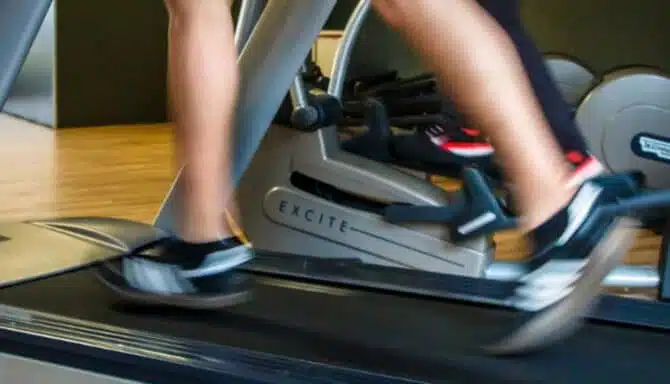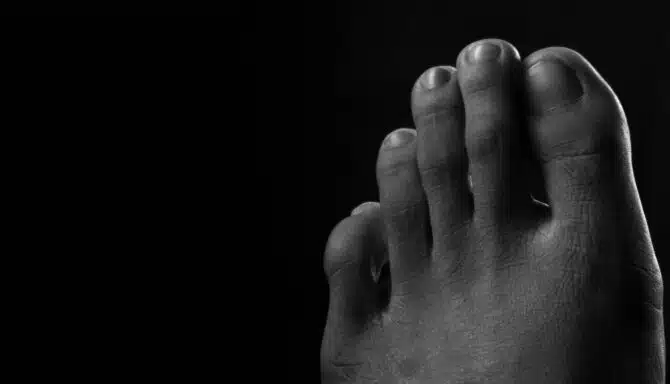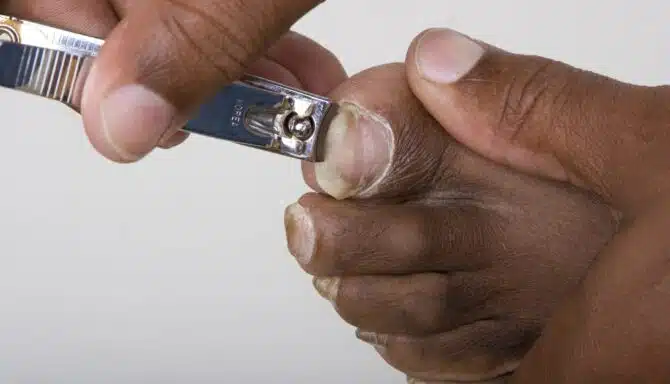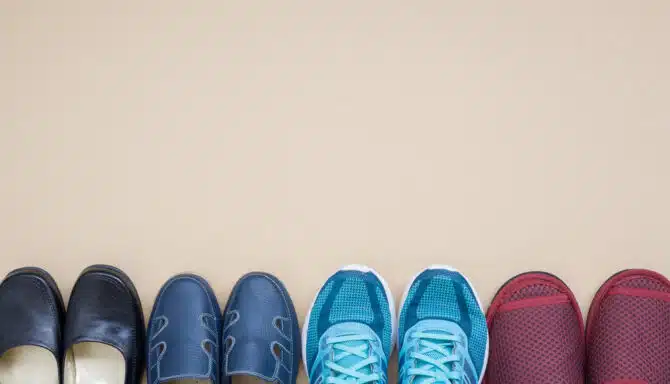Gout is an inflammatory disorder caused by high levels of uric acid in the blood. Uric acid crystallizes in the form of urate crystals in the joints of hands, feet and elbows. Gout affects roughly 3 million Canadians each year.

Causes
Gout is caused by a combination of environmental and genetic issues. Most commonly, environmental triggers include diet with foods that have high levels of purines which then break down into uric acid. Foods that can lead to high levels of urate are red meats, seafood, refined or processed carbohydrates, sugary drinks and alcohol such as beer and hard liquor.
Gout was often called the “disease of kings” as only wealthy people would be afflicted due to their rich diet and excessive drinking. The most famous king to be afflicted with chronic gout was King Henry VIII. Genetic factors such as hyperuricemia can impact the frequency of gout attacks.
Hyperuricemia occurs when your body does not filter urate properly from the bloodstream, either from the kidneys or the gut. Another common issue is if your body doesn’t break down sugars properly, this can affect how urate is stored. The risk of gout increases with age, particularly in women. The role of estrogen helps to regulate urate in the body so after menopause, urate levels in women increases drastically. Certain medications may also lead to hyperuricemia, such as diuretics and cyclosporine.
Finally, conditions linked with hyperuricemia are high blood pressure, kidney disease, thyroid disease, diabetes and sleep apnea.
Symptoms
While your body is producing high levels of uric acid this stage is called Asymptomatic gout as there are no signs or symptoms. The next stage is Acute intermittent gout and it starts off with a painful swelling in the joint often in the middle of the night. Most people wake up with the feeling their joints or foot is on fire. Gout most commonly affects the joint of the big toe because urate crystals deposit at the furthest joint in your body – gravity also plays a role. However, gout can affect any joint, the ankle and elbow are also commonly affected joints. The pain and swelling of the joints is likely to be severe for the first 4-12 hours and then a lingering pain or discomfort can last for weeks. The affected joints are also noticeably different with a red, swollen, tender and warm appearance. As gout progresses and is left untreated, the range of motion of the joint is also limited due to the swelling and deposits of hard urate crystals lumps called Tophi which damage and affect the joint structure and the surrounding skin.
Gout vs. Rheumatoid Arthritis
Rheumatoid arthritis (RA) can have similar symptoms as gout but the causes are different. RA is an autoimmune inflammatory condition where your own body attacks healthy synovial cells inside your joints. This attack causes inflammation, pain and swelling and most often attacks the hands, wrists, ankles and knees.
Tests
Gout can be diagnosed clinically with the appearance of a red, hot and swollen joint but as well as the timeframe. Your family doctor will also check for urate crystals by running tests on the fluid from your joint, blood work and possibly order an x-ray.
Treatment
Depending on the stage of gout, your family doctor will prescribe medication to either help with the pain and swelling or to prevent further attacks. Medication to help relieve pain and swelling are NSAIDS, specifically Indomethacin, colchicine and possibly corticosteroids. These drugs are often prescribed for acute gout attacks.
For chronic gout, medications to help prevent further attacks are allopurinol and probenecid. Along with medication your family doctor will advise you to make some lifestyle changes such as reducing alcohol intake, losing weight and quitting smoking.
After a gout attack, it is advised to visit a chiropodist to assess the range of motion at the affected joint and see if your gait has been altered and affected.







